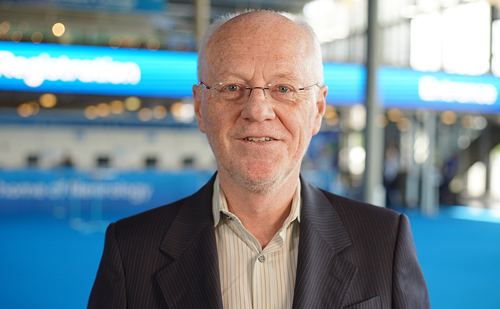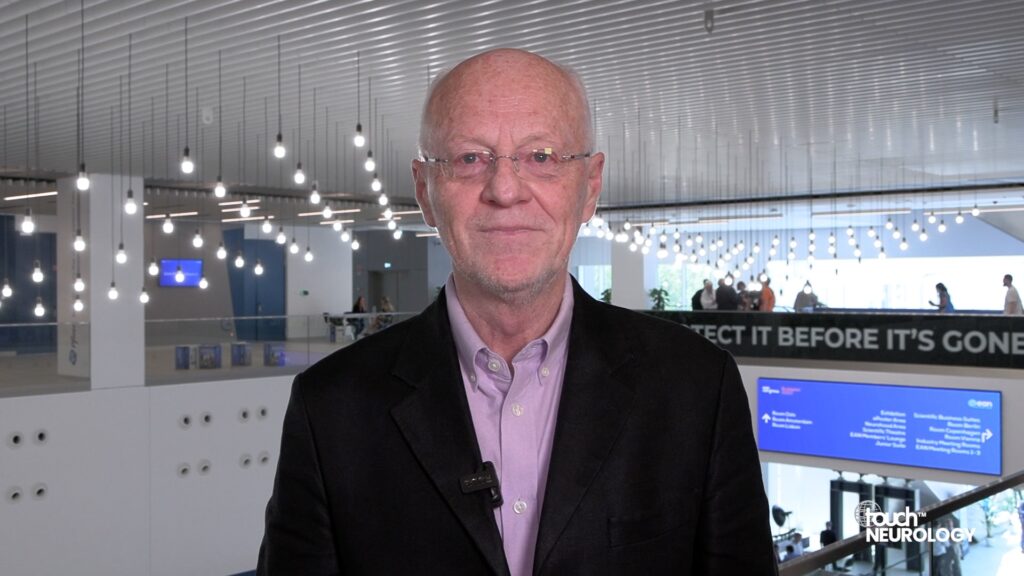Migraine affects over 1 billion people worldwide causing significant disability and a socioeconomic burden. Preventive treatment is key to managing migraine, but it is often underutilized. Prof Stewart Tepper (Geisal School of Medicine – Dartmouth, Hanover, NH, USA) summarizes his presentation from the 75th AAN Annual Meeting, 2023. Remote electrical neuromodulation (REN), a non-pharmacological acute migraine treatment, was evaluated as a method of migraine prevention in patients with episodic and chronic migraine. The aim of the present clinical trial was to evaluate the efficacy and safety of Remote Electrical Neuromodulation (REN), used every other day, for the prevention of migraine in a multi-center, randomized, double blind, placebo-controlled study. As a result of this trial the FDA approved the device for the prevention of all migraine.
Disclosures: Stewart Tepper has received grants for research (no personal compensation) from Allergan/Abbvie, Amgen, Eli Lilly, Lundbeck, Neurolief, Novartis, Satsuma and Zosano. He is a consultant and/or member of the advisory boards (honoraria) for Aeon, Allergan/Abbvie, Alphasights, Amgen, Aruene, Atheneum, Axsome Therapeutics, Becker Pharmaceutical Consulting, BioDelivery Sciences International, Biohaven, ClearView Healthcare Partners, ClickTherapeutics, CoolTech, CRG, Decision Resources, Defined Health, DRG, Eli Lilly, ExpertConnect, FCB Health, Fenix, GLG, Guidepoint Global, Health Advances, Health Science Communications, HMP Communications, Impel, Initiatior Pharma, InteractiveForums, Keyquest, Ki Health Partners, Krog and Partners, Lundbeck, M3 Global Research, Magnolia Innovation, MJH Holdings, Miravo Healthcare, Neurofront Therapeutics, Neurolief, Novartis, P Value Communications, Pain Insights, Inc, Palion Medical, Pulmatrix, Putnam Associates, Rehaler, SAI MedPartners, Satsuma, Slingshot Insights, Spherix Global Insights, Strategy Inc, Synapse Medical Communication, System Analytic, Taylor and Francis, Tegus, Teva, Theranica, Tremeau, Trinity Partners, Unity HA, Vial, XOC and Zosano. He receives his salary from Dartmouth-Hitchcock Medical Center and Thomas Jefferson University. He has received CME honoraria from the American Academy of Neurology, American Headache Society, Annenberg Center for Health Sciences, Catamount Medical Education, Diamond Headache Clinic, Forefront Collaborative, Haymarket Medical Education, HMP Global, Medical Education Speakers Network, Medical Learning Institute Peerview, Migraine Association of Ireland, Miller Medical Education, National Association for Continuing Education, North American Center for CME, The Ohio State University, Physicians’ Education Resource, PlatformQ Education, Primed, Vindico Medical Education and WebMD/Medscape.
Support: Interview and filming supported by Touch Medical Media. Interview conducted by Sophie Nickelson.
Filmed as a highlight of the 75thAAN Annual Meeting, 2023
Transcript
Hello, I’m Stewart Tepper. I’m a professor of neurology at the Geisel School of Medicine at Dartmouth in Hanover, New Hampshire.
Another very important study presented at the American Academy of Neurologology Meeting in April of 2023 was a prospective multi-centre double-blind randomized Sham controlled study evaluating the effectiveness and safety of a non-invasive neuromodulation device, the remote electrical neuromodulation device or REN or Ren.
Ren had already been cleared by the FDA for acute treatment of migraine. It’s a device that goes on the arm and then is turned down with a smartphone app, it buzzes the arm for forty-five minutes for acute treatment. This was a prospective study for the preventive treatment of chronic and episodic migraine, Patients had a four-week baseline, and then a two-month sham controlled period.
And what made this different from a lot of other preventive trials, is that it was only two months, and the primary endpoint was in the second month, that is the mean reduction of migraine days in that second month. So for this device to work, it had to work rapidly, and it did, and this prospective sham-controlled trial had 179 participants, and the drop from the baseline of migraine days, which was about twelve days per month, was four days per month compared to one point three for placebo.
The study was powered to allow for pre-specified analysis of both the episodic and the chronic migraine groups.
And they were about equal, and in both groups, there was a statistically significant mean reduction of migraine days, as well as at least a fifty percent reduction in moderate to severe headache days, and in acute medication intake days. As well as all headache days. And the reason that there were twelve migraine days per month in this study was that was intermediate between high frequency episodic and low frequency chronic migraine in this particular study
The Adverse events were negligible, those one patient who got a little bit worse with the sham device.
The FDA, as a result of this pivotal trial, cleared the remote electrical neuromodulation device for prevention of all migraine, episodic and chronic, in addition to the previous clearance for the acute treatment of migraine, the device in this study was used at 45 minutes daily – It should be at forty five minutes in a single delivery every other day for the prevention. That’s an unusual way to prevent, Rimegepant has in every other day preventive protocol as well, 75 milligrams every other day. So for this non invasive remote electrical neuromodulation, device, forty five minutes every other day appears to be very effective in preventing episodic and chronic migraine, certainly in the same ballpark as our medications. But it also can be used acutely for the acute treatment of migraine, again similarly to Rimegepant.
Again, I think this is quite an important study, and the remote electrical neuromodulation device is commercially available in the United States with an increasing usage by headache specialists and headache providers including neurologists.









